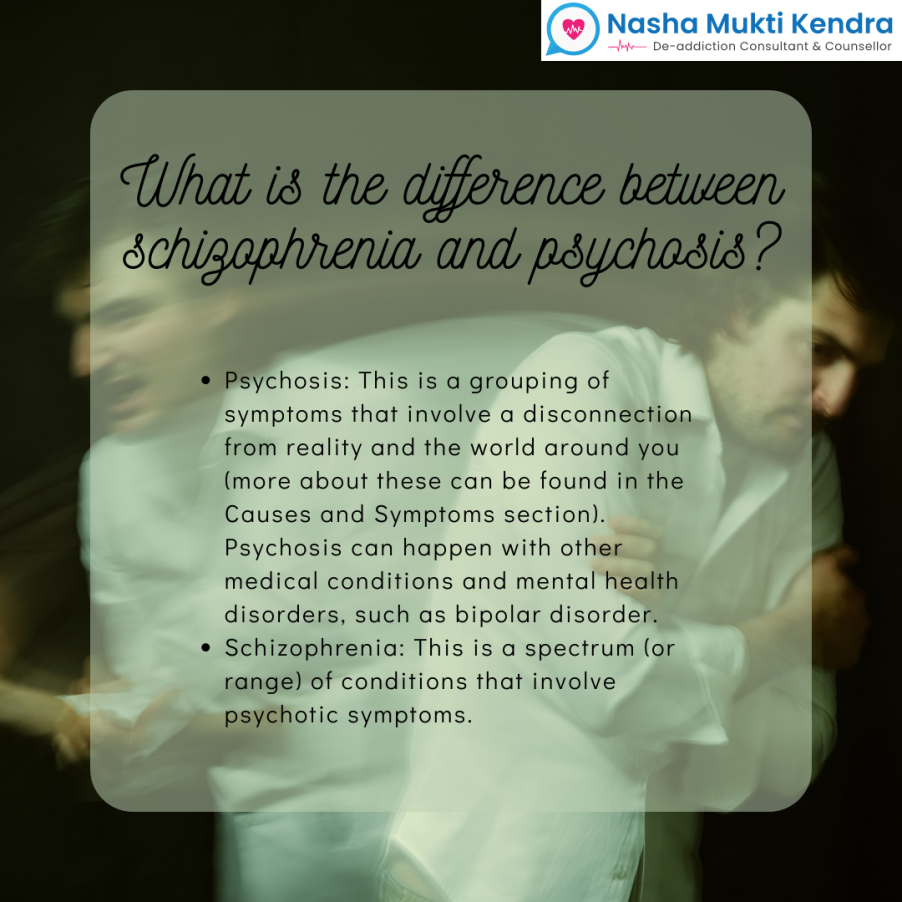Schizophrenia is a complex and chronic mental disorder affecting millions worldwide. It is characterised by symptoms, including hallucinations, delusions, disorder, disorganised thinking, and abnormal behaviours. This blog aims to comprehensively understand Schizophrenia by exploring its cause, symptoms, and available treatment options.
Causes of Schizophrenia
The exact cause of Schizophrenia remains unknown, but researchers have identified several factors that may contribute to its development:
- Genetics: Schizophrenia tends to run in families, suggesting a genetic component. Individuals with a family history of the disorder have a higher risk of developing it themselves.
- Brain chemistry and structure: Imbalances in brain chemicals, such as dopamine and glutamate, have been implicated in Schizophrenia. Additionally, structural abnormalities in certain brain regions, such as the prefrontal cortex and hippocampus, have been observed in individuals with the disorder.
- Environmental factors: Prenatal exposure to viral infections, maternal malnutrition, and complications during birth has been associated with an increased risk of Schizophrenia. Furthermore, exposure o certain psychoactive substances during adolescence may contribute to the development of the disorder in vulnerable individuals.
Symptoms of Schizophrenia
Schizophrenia is a heterogeneous disorder, meaning that symptoms can vary greatly from person to person. The symptoms are typically divided into three categories:
- Positive symptoms: These refer to symptoms that are present in individuals with Schizophrenia but not in the general population. They include hallucinations, delusions, disorganised thinking and speech, and abnormal motor behaviour.
- Negative symptoms: These refer to the absence or reduction of normal behaviours or emotions. Negative symptoms include a lack of motivation, social withdrawal, reduced emotional expression, and difficulty experiencing pleasure.
- Cognitive symptoms: These refer to difficulties in thinking and processing information. Common cognitive symptoms include problems with memory, attention, and executive functions (such as planning and problem-solving).
Treatment options for Schizophrenia
While there is currently no cure for Schizophrenia, effective treatments are available to manage the symptoms and improve the quality of life for individuals with the disorder. Treatment typically involves a combination of the following approaches:
Medication:
Antipsychotic medications are the cornerstone of schizophrenia treatment. They work by targeting the brain’s dopamine receptors and helping to reduce the intensity of psychotic symptoms. Different types of antipsychotics are available, and the choice of medication depends on the individual’s specific needs and response to treatment.
Psychotherapy:
Various forms of psychotherapy, such as cognitive-behavioural therapy (CBT) and family therapy, can be beneficial for individuals with Schizophrenia. CBT helps individuals with Schizophrenia. CBT helps individuals identify and challenge distorted thoughts and beliefs, while family therapy focuses on improving communication and support within the family system.
Social support:
Building a strong support network is crucial for individuals with Schizophrenia. This can involve connecting with support groups, participating in vocational and educational programs, and engaging in social activities. Social support provides a sense of belonging, reduces isolation, and promotes overall well-being.
Rehabilitation and skills training:
Rehabilitation programs aim to help individuals with Schizophrenia regain and enhance their functional abilities. These programs may include vocational training, social skills training, and education on independent living skills. Rehabilitation can significantly improve an individual’s ability to manage daily tasks and maintain employment or educational pursuits.
Hospitalisation:
In several cases, hospitalisation may be necessary to provide intensive treatment and ensure the safety of the individual. Hospitalisation allows for close monitoring, meditation adjustments, and stabilisation during acute episodes of psychosis.
It is important to note that treatment plans should be individualised to address each person’s unique needs and preferences. Regular follow-up appointments with healthcare professionals are crucial to monitor the effectiveness of treatment and make any necessary adjustments.
Challenges and future directions
Despite significant advancements in understanding Schizophrenia and its treatment, several challenges remain:
- Stigma: Schizophrenia is often misunderstood, leading to stigma and discrimination against individuals with the disorder. This can hinder their access to healthcare, employment opportunities, and social support. Efforts to raise awareness and educate the public about Schizophrenia are essential to combatting stigma.
- Treatment adherence: Many individuals with Schizophrenia struggle with medication adherence, which can lead to relapses and worsening symptoms. Strategies to improve adherence include psychoeducation, healthcare professionals’ support, and long-acting injectable antipsychotics.
- Research and innovation: Continued research is needed to deepen our understanding of the underlying mechanisms of Schizophrenia and develop more targeted and effective treatments. Advances in neuroimaging, genetics, and neuroscience hold promise for future breakthroughs in the field.
Get help from Nasha Mukti Kendra
At Nasha Mukti Kendra, we have the best clinical psychologist in our centres to treat Schizophrenia. We suggest to our patients some tips and trick to control their Schizophrenia. Although we use American-based therapy, known as Love and Care therapy, to treat our patients. We provide sessions with our best therapists and help control your thought process without using medicine/drugs.
Additionally, we have a huge space where patients can do their yoga and meditation in peace. Meditation can help reduce stress and control negative thoughts. Focusing on practising yoga can help you divert your mind to the body more. Connect us if you or your loved ones need any help with Schizophrenia.
